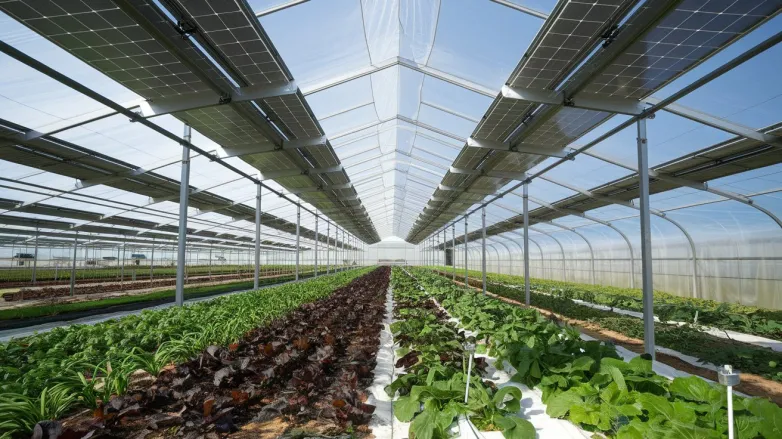Japan Launches Agrivoltaic Solar Cell Demonstration Test
- Discover the future of sustainable farming as Sekisui Chemical and TERRA launch Japan’s first agrivoltaic test, harnessing innovative perovskite solar cells for greener energy and thriving crops!

Sekisui Chemical and TERRA have initiated Japan's first joint demonstration test for agrivoltaic systems, utilizing film-type perovskite solar cells in Sosa City, Chiba Prefecture, starting August 2, 2024. Sekisui has developed a roll-to-roll manufacturing process that demonstrates outdoor durability equivalent to ten years and achieves a power generation efficiency of 15%. TERRA, specializing in agrivoltaics, aims to improve sustainable farming practices and enhance energy production while collaborating with various organizations, including Citizen Energy Chiba.
The demonstration will focus on installing and assessing the effectiveness of film-type perovskite solar cells for farming applications, including measuring power generation efficiency of curved modules and their impact on crop growth. The initiative addresses challenges faced in traditional agrivoltaic systems, such as structural stability under wind loads. By advancing agrivoltaics with lightweight perovskite technology, Sekisui Chemical and TERRA aim to contribute to Japan’s decarbonization goals and expand renewable energy use across agricultural lands.
How will Sekisui Chemical and TERRA's agrivoltaic test impact sustainable farming and energy?
Impact of Sekisui Chemical and TERRA's Agrivoltaic Test on Sustainable Farming and Energy
- Innovative Technology Adoption:
- The introduction of film-type perovskite solar cells represents a noteworthy advancement in solar technology, offering flexibility and lightweight properties that can be beneficial for agricultural settings.
- Enhanced Crop Yields:
- The test will explore how the solar cells affect crop growth and yield, potentially leading to improved agricultural productivity by providing a dual-use solution that benefits both energy generation and farming outputs.
- Resource Efficiency:
- Agrivoltaic systems maximize land use by combining solar energy production with agricultural practices, allowing farmers to generate renewable energy while cultivating crops, thereby optimizing resource allocation.
- Climate Resilience:
- By utilizing lightweight materials and improving structural stability against environmental factors, this initiative could lead to more resilient farming practices, better able to withstand extreme weather conditions.
- Reduction in Carbon Footprint:
- The project aligns with Japan's decarbonization goals by promoting renewable energy solutions that reduce reliance on fossil fuels, thus contributing to lower greenhouse gas emissions in the agricultural sector.
- Economic Benefits for Farmers:
- The deployment of agrivoltaic systems can provide an additional revenue stream for farmers through electricity sales or reduced energy costs, enhancing their economic resilience.
- Community Engagement:
- Collaborations with organizations such as Citizen Energy Chiba foster community involvement and raise awareness about renewable energy and sustainable practices, potentially inspiring broader adoption within other regions.
- Pilot for Future Innovations:
- This demonstration test serves as a pilot for further research and development of agrivoltaics, establishing a framework that other regions can adopt, which may lead to international advancements in sustainable farming practices.
- Policy and Regulatory Support:
- Successful outcomes from this initiative could encourage government support and favorable policies for agrivoltaic systems, incentivizing more farmers to adopt renewable energy technologies on their lands.
- Long-term Viability of Solar Technology:
- Given the ten-year durability target of the developed solar cells, the project aims to demonstrate that renewable energy solutions can be both financially sustainable and environmentally friendly, encouraging long-term investment in similar technologies across Japan and beyond.
Also read

